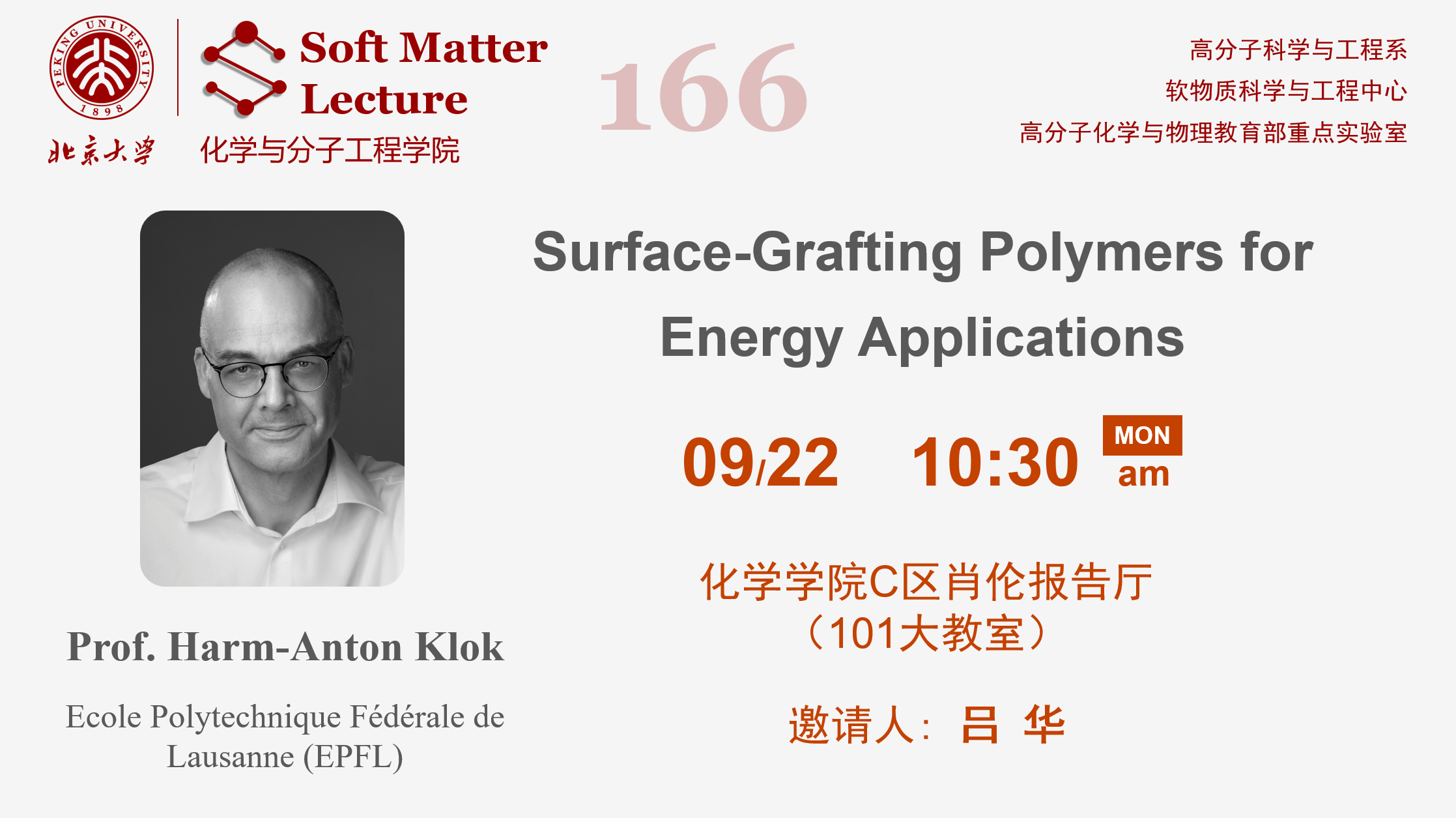
Abstract
Surface-grafted polymer thin films, which are commonly referred to as polymer brushes, have emerged as a unique class of surface coatings. Chain-end tethering polymers in close proximity using surface-initiated polymerization methodologies enforces a stretched conformation of the polymer grafts, which leads to several unique materials properties. Polymer brush films, for example, can be designed that are exceptionally effective in preventing biofouling, or which possess extraordinarily low friction coefficients. In this presentation, I will share work from our laboratory that leverages the unique characteristics of surface-initiated polymerization and surface-grafted polymer brushes towards energy applications, and in particular the use of polymer brushes in solar cells, hydrogel fuel cells and as pyro- and piezoelectric materials.
Biography
He received his Ph.D. in 1997 from the University of Ulm (Germany) after working with Martin Möller. After postdoctoral research with David N. Reinhoudt (University of Twente) and Samuel I. Stupp (University of Illinois at Urbana–Champaign, USA), he joined the Max Planck Institute for Polymer Research (Mainz, Germany) in early 1999 as a project leader in the group of Klaus Müllen. In November 2002, he was appointed to the faculty of EPFL. His research interests include polymer surface and interface science, polymer nanomedicine and polymer synthesis and functionalization.